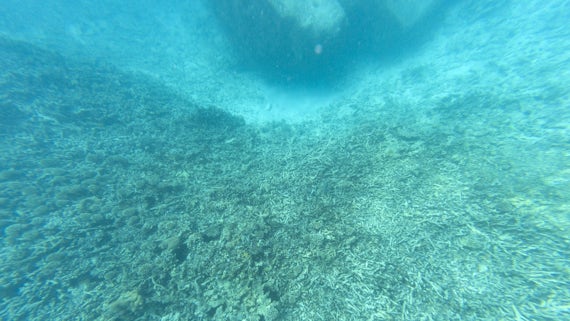Ocean acidification to hit levels not seen in 14 million years
 The world’s oceans are likely to become more acidic than at any time in the past 14 million years, scientists have found.
The world’s oceans are likely to become more acidic than at any time in the past 14 million years, scientists have found.
New research led by Cardiff University has shown that under a ‘business-as-usual’ scenario of carbon dioxide (CO2) emissions, ocean acidification is likely to hit unprecedented levels.
Ocean acidification occurs when CO2 from the atmosphere is absorbed by seawater, resulting in more acidic water with a lower pH.
Around a third of the CO2 released by burning coal, oil and gas gets dissolved into the oceans. Since the beginning of the industrial era, the ocean has absorbed around 525 billion tons of CO2, equivalent to around 22 million tons per day.
The rapid influx of CO2 in to the oceans is severely threatening marine life, with the shells of some animals already dissolving in the more acidic seawater.
In their new study, published in the journal Earth and Planetary Science Letters, the researchers set out to reconstruct levels of ocean acidity and atmospheric CO2 levels over the past 22 million years.
They did so by studying the fossils of tiny marine creatures that once lived near the ocean surface, specifically using the chemistry of their shells to monitor the acidity of the seawater in which the creatures lived.
Leia mais em Cardiff
















